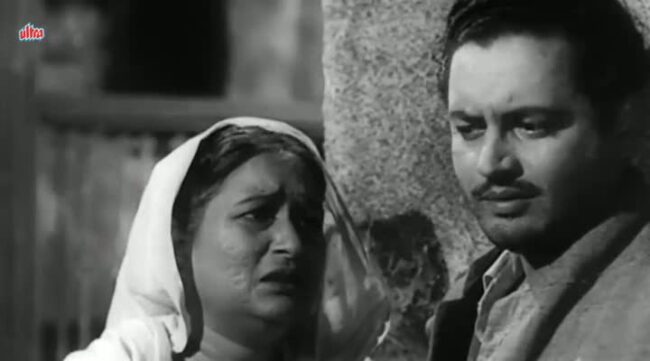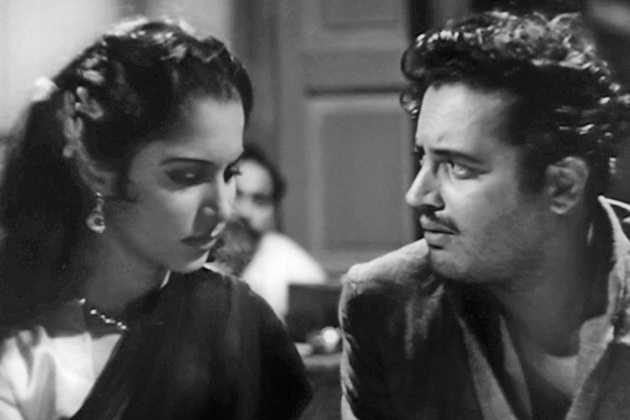Seldom these days, Bollywood attempts to capitalize on projects and ventures, which could make it’s viewers face mirror, or saying it the other way around, there aren’t many films which seek to provide an honest and more clear reflection of how our society is. Films like Masaan,Udaan, Aligarh and Lakshya for that matter,fell short to bring notable counts of people to theaters.They however, worked well in enchanting the sect of cinema enthusiasts, which wants to see quality work,and now these films are watched on laptops.
One such film, that is revered for it’s completeness and totality when talking about the technicalities of motion filming to this day, and exhibits the level of expertise Indian cinema is capable of achieving, is legendary Guru Dutt’s, Pyaasa, in the year 1951.
An exemplary of the extent of dedication, passion and zeal that Guru Dutt used to put in his works is often recalled by many successful directors and actors like Vidhu Vinod Chopra, Aamir Khan and Boman Irani. As a matter of fact, when Boman Irani received his first Filmfare award for 3 Idiots,his gratitude speech had a mention of Pyaasa, how the film had it’s impact on his knowledge of his field of work.

Pyaasa had a strong storyline,with Guru Dutt donning the hats of protagonist,director and producer. The film also starred several other legends of Indian cinema, Waheeda Rehman,Mala Sinha,Rehman,Mehmood and Johnny Walker.Guru Dutt’s vision, fueled with a resolute star cast,great S.D Burman and Sahil Ludhiyanvi taking care of music and lyrics respectively,written by Abrar Alvi and cinematographer V.K. Murthy,made this film immortal and a box office hit. Pyaasa is one of the hundred films, to be included in the All-Time 100 Movies list by Time Magazine.
The story essentially revolves around Vijay (played by Guru Dutt),playing a struggling poet in post-independence India, Meena,Vijay’s love interest during his college days(played by Mala Sinha) and Gulaabo(Waheeda Rehman), a prostitute who got a glimpse of Vijay’s bonhomie and writing prowesss, only to fall for him in the later course of the movie.It was Gulaabo who eventually got Vijay’s work published.The film justifies it’s title as Vijay is seen to struggle with his life altogether, bereft of the love of his mother and his lady love and timely recognition to his works,adding to his despair, hence a pyaasa. He is shown to be immune to happiness of any kind,being unemployed,meeting his first love later in life just to know that she has always been more conscious towards wealth and prosperity and Vijay’s feelings were only second, in comparison to her desire of material satisfaction.
The film showcases the ordeal of a writer, with his worth not being valued by his own brothers and friend because of unemployment. His flair being considered a trash since he is a novice, to falling prey to a wealthy publisher’s vendetta. Personal losses and ongoing anguish caused him to attempt suicide,only to inhabit a bedlam,though being mentally stable. Furthermore,it shows how his poems and verses gained popularity, while the author himself remains unaware of the fact and people taking fraudulent claims of his works and name. Eventually, Vijay realizes how people around him,never acknowledged his worth, are only after the admiration his works have gained involuntarily and abandons everything, including his name.

Summing it up, Pyassa is undoubtedly a classic and a case study for all those who want to delve themselves to study intelligent and appealing cinema. It triumphantly sets Guru Dutt as an epitome of perseverance and dedication, in the art of making films.Many movies of the time around 1950s, like Mughal-e-azam or Naya Daur got re-released in vibrant colors, but one reason that can be speculated for Pyaasa not undergoing the same, can be that nobody dares to mingle with the creative elegance of this masterpiece and compromise with the reputation it has attained over a period.

